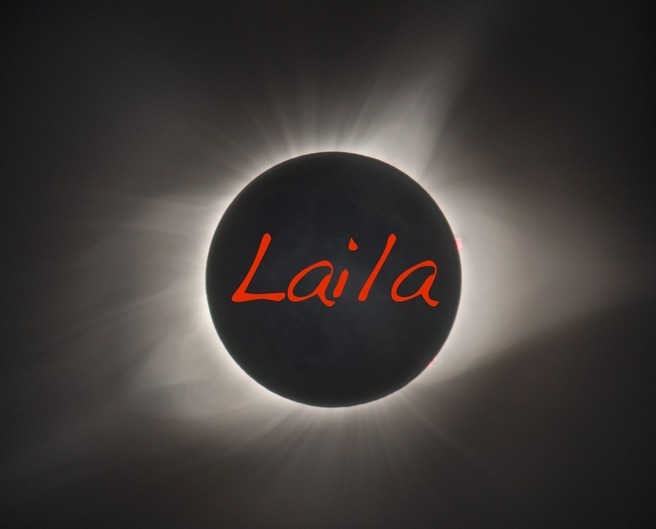The mere facts about Laila’s life do not convey how important she was to so many people. In my case she was:
my lover,
my buddy,
my muse,
my mentor,
my inspiration,
in short, the best parts of me.
Her infectious laughter will stay with me as long as I live.
All through our marriage she helped me, counseled me, talked me back to sleep in the middle of the night when I was fretting about something. She was my shrink.
It’s hard to think outside the box, but Laila was good at it. She would prod me when I was in a rut, help me get out of it, and congratulate me when I was successful. If I had stuck to my midwestern upbringing, I’d probably now be a humdrum retired engineer/physicist somewhere. With Laila I embarked on a series of careers, first directed to space travel, then to rescuing civilization from some of the deadening effects of the industrial age.
Laila found our home base, just a few hundred yards and on the seaward side of the Tigertail ridge from where we lived, in the spring of 1963. It was just what we had been looking for: airy, great view, coastal climate, comfortable, next to a wilderness park and right in the west side of Los Angeles. Laila’s cousin Bernice secured it for us and we moved in on 3 June, 1963. We expanded it in 1990 to accommodate our home offices but retained its 1950s design philosophy. In all our travels around the world we have not found another setting where we preferred to live.
We didn’t have any kids but not from lack of trying. Our mutual physiologies apparently were incompatible as far as the level of medical progress of the late 1950s went. But Laila was a great teacher and would have been a great mother because she had the patience, strength and wisdom to do it. She had already demonstrated those qualities in the Chicago school system before we met. She also showed them in helping raise her niece and nephew, both of whom have turned out very well indeed.
Laila loved to go exploring new places, sights, and sounds with me, both at/near home and elsewhere in the world. We traveled extensively, both in the western US and abroad. Much of the foreign travel was on business; as a result we did less sightseeing and photography on those occasions — but still enjoyed the experiences of meeting new cultures and people.
I even took her along on some trips when I was in the highly classified space reconnaissance business. I often asked her to drop me off in the Pentagon parking lot – or some more obscure place – and to pick me up later. She never flinched at the task and was always there at the appointed time, even though she didn’t know whom I was seeing or what the trip was all about. She used the occasions to explore the surrounding countryside of wherever we were.
In the mid-1960s Laila gave me sailing lessons for my birthday. Her intent was to provide a way to reduce the tensions brought on by my work in the space program. It worked like a charm. We bought a series of sailboats and spent many happy hours and days cruising Santa Monica Bay and the nearby Channel Islands. Laila loved those early morning sails when we were accompanied by flying fish and schools of porpoises. We sold the last sailboat when our work and travels related to telecommuting left us little time for sailing, although we still belong to our yacht club.
We were what is now known as “foodies,” exploring the many types of cuisines found in Los Angeles. One of our dates before we were married was to eat sukiyaki at a local Japanese restaurant — in the days before Asian food and other cuisines became local norms. At home I became the chef, with Laila as the sous chef, exploring many types of cooking from around the world. We still have a pantry and spice shelves full of exotic ingredients.
High quality classical music was the focus of Laila’s professional life. She did not suffer poor quality gladly. She was also a jazz enthusiast and promoted any genre of music where there was excellence in both composition and performance. She formed and kept reforming her trio and other combinations with the flute, and arranged chamber music concerts at Concerts at the Mount, Concerts West and all over southern California.
In 1976 she recorded a CD, Music for Flute and Piano by Four Americans, to highlight contemporary American composers and celebate our country's 200th birthday. The final track from that CD, Aaron Copland's Duo for Flute and Piano, Lively with bounce, is the background music on this site. It epitomizes Laila's personality.
When she quit performing and turned to producing records with Jane Welton (Protone Records), she often had intense conversations with friends Abram Chasins, Nicolas Slonimsky and others about the relative merits of composers, performers and performances, both live and recorded. She loved getting things just right when recording, concentrating on how it should best sound and how to get the performer to produce it, take after take. She urged Constance Keene to record Rachmaninoff’s complete Etudes Tableaux and coaxed Jane into making two CDs featuring Ayke Agus, Jascha Heifetz’s erstwhile accompanist. None of these records are mass sellers but all are examples of excellence in performance and concept.
This short excursion into Laila’s life still just hits some of the highlights. She was an unforgettable person and I will continue to miss her profoundly.
Jack Nilles


